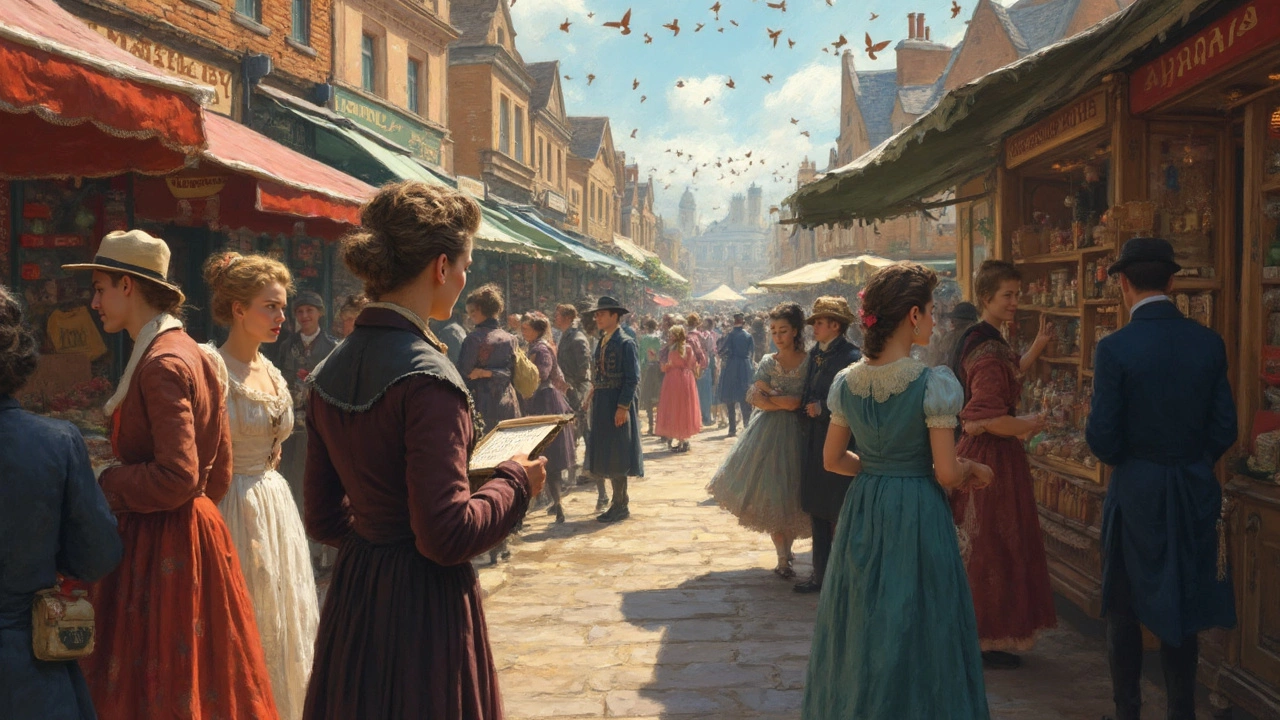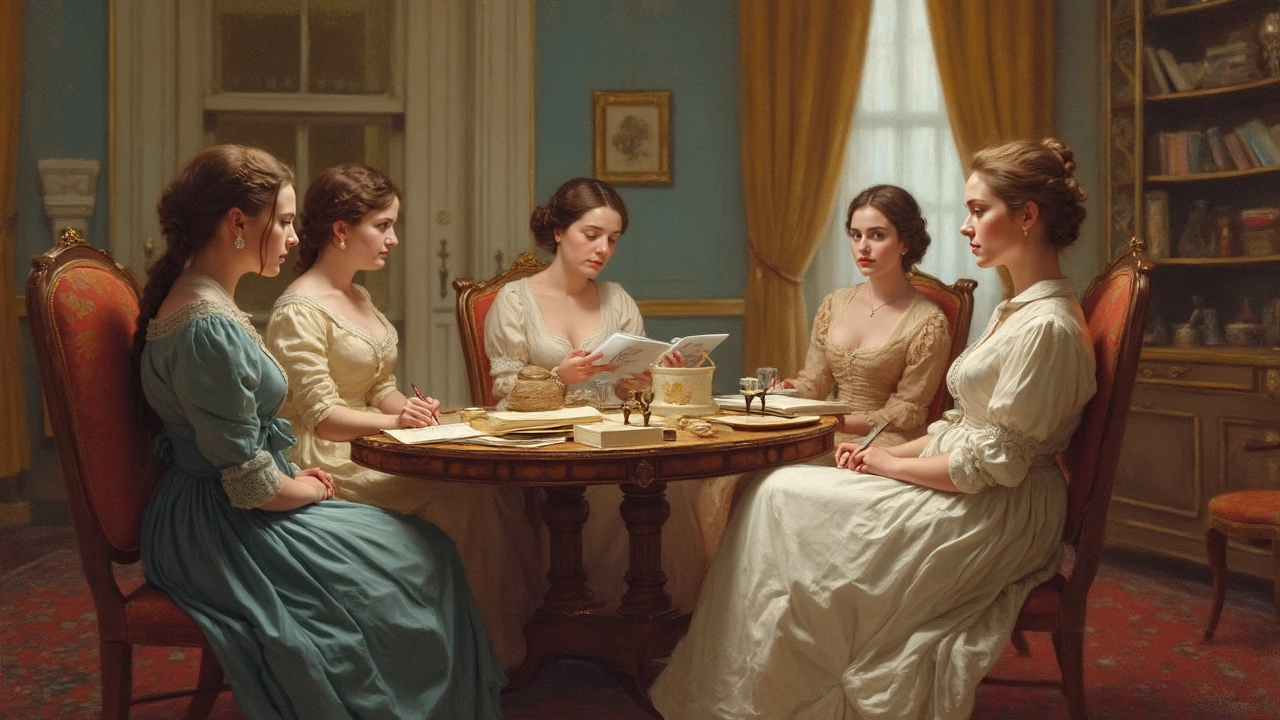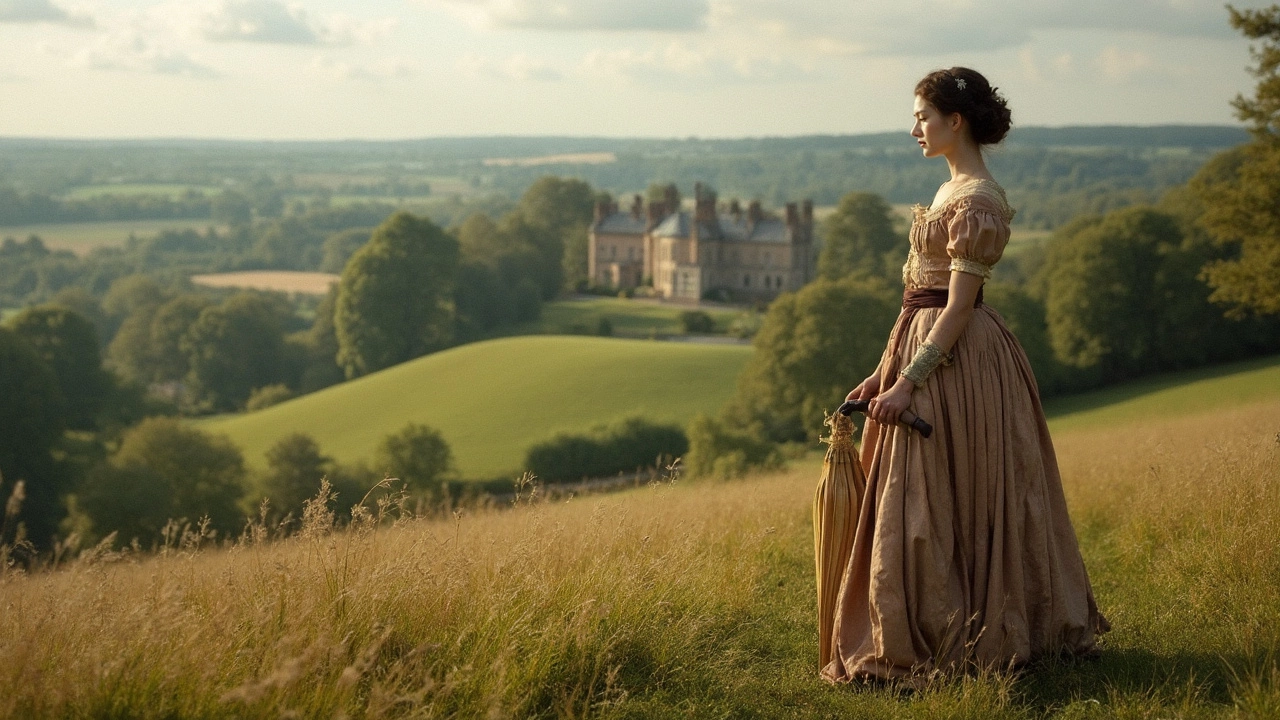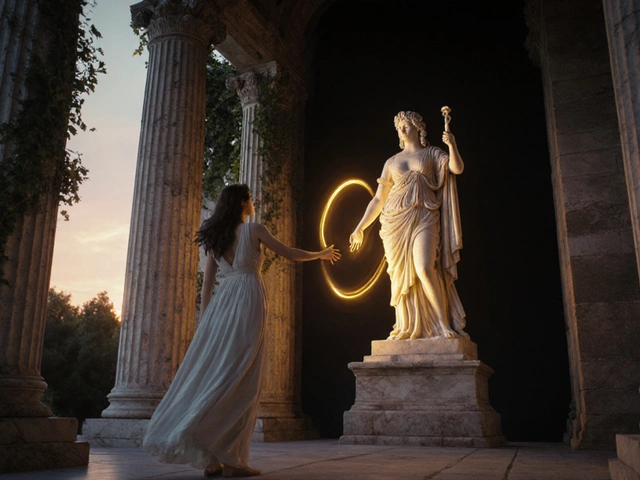
So, you're wondering if Jane Austen's novels can be categorized as historical fiction? This question has sparked many debates among readers and literary fans alike. Historical fiction typically involves stories set in the past, with a focus on bringing historical details to life. But where does Austen fit in all this?
Let's set the scene. Jane Austen wrote during the late 18th and early 19th centuries, capturing glimpses of her contemporary English society. Because of this, some folks think her work isn't 'historical' per se, since she wasn't looking back in time. Instead, she was writing about the world around her as she saw it.
But here's the kicker: while Austen didn't weave historical events directly into her narratives, her novels offer a vivid portrayal of her era's social norms, fashion, class structures, and daily life. And that, my friends, often sounds a lot like the goal of historical fiction, doesn't it?
- Understanding Historical Fiction
- Jane Austen's Era
- Austen's Novels Through a Historical Lens
- Misconceptions About Austen's Work
- The Timeless Appeal of Austen
Understanding Historical Fiction
Diving into historical fiction is like stepping into a time machine — but with a twist. It's not just about getting the facts right; it's about weaving those facts into a compelling narrative. So, what exactly defines this popular genre?
Firstly, historical fiction is all about setting. A well-crafted novel in this genre places characters and plots within a specific historical period. But it's not just a backdrop; it's a vital part of the story. Authors must immerse readers in the sights, sounds, and even smells of the time.
Key Elements of Historical Fiction
- Historical Accuracy: While the main plot might be fictional, it's crucial that the historical elements are spot on.
- Authentic Characters: Characters should behave in ways appropriate to their time. No texting in the 1800s!
- Rich Details: Descriptions of clothing, food, and technology that are true to the era.
Many historical fiction writers spend loads of time researching. It's common for authors to dig through archives, read letters from the period, or even visit historical sites. This commitment to accuracy helps in building a believable world.
But here's an interesting wrinkle — some writers play a bit loose with the facts to enhance their story. They'll tell you upfront, though, usually in a preface or author's note, distinguishing between creative liberties and historical truths.
So, when we talk about Jane Austen and historical fiction, it's essential to understand how her works relate to these elements. Austen may not have intentionally crafted her stories as historical fiction, but they provide a window into her own time. This makes us appreciate the fine line between living history and historical fiction.
Jane Austen's Era
Jane Austen lived during a fascinating time in English history, a period of great social and economic change. Born in 1775, Austen experienced the tail end of the Georgian era, which was marked by the reign of King George III. This time included significant events like the American Revolutionary War and the Napoleonic Wars. Austen lived through these turbulent times, though you'd hardly know it from her writing, which focuses instead on the domestic sphere.
What makes Austen really interesting is how she captured the everyday life of the English middle class in the early 19th century. Her novels are set against the backdrop of a society where class defined your opportunities and social gatherings were the highlight of young people's lives. It's all about the ballrooms, matchmaking, and the quest for security through marriage.
The Social Scene
Society back then had its strict rules and expectations, especially for women. Young women were expected to marry well, often prioritizing wealth and social status over love. This dynamic plays out vividly in Austen's works. She depicts the pressures and intricacies of social interactions with wit and precision, highlighting the roles and opportunities available for women of her time.
Economic Landscape
The economy was shifting too, moving toward industrialization. However, in Austen's world, the focus was still very much on the landed gentry and their estates. These estates were at the heart of the rural economy and social structure. The idea of inherited wealth as a ticket to social standing and stability is a recurring theme in her stories.
Understanding Jane Austen's era gives us a proper context for her novels. She may not have written about grand battles or royal intrigue like other historical fiction authors, but her keen observations provide a window into the subtle, yet significant cultural shifts of her time.

Austen's Novels Through a Historical Lens
When we look at Jane Austen's novels, like Pride and Prejudice or Emma, through a historical lens, something fascinating happens. Though they weren't intended as history lessons, they give us a remarkable peek into the daily life and social customs of early 19th-century England. Readers today can get a feel for that time in history just by enjoying her stories.
Take, for example, the class dynamics in Pride and Prejudice. The drama between Elizabeth Bennet and Mr. Darcy isn't just a romantic tale. It's loaded with insights into the importance of social status and economic considerations during that era. Back then, marriage was as much about ensuring financial stability as it was about love, sometimes even more so.
Let's not forget fashion either. In Austen's novels, there's regular mention of balls and gatherings where characters meet. These events paint a picture of the clothing styles of the time, like regency gowns and tailcoats. These weren't just casual mentions; they defined social settings and character interactions.
And then there's the whole business of manners and etiquette. Austen had a knack for highlighting how pivotal these were in social interactions. A great example is when Mr. Collins proposes to Elizabeth—and gets turned down. The way they navigate this awkward situation? Pure gold when it comes to understanding social conduct.
Reality vs Fiction
Though Austen's novels weren't set against major wars or political upheavals that dominate other historical fiction, they mirror everyday realities. By exploring her characters' lives, we learn about inheritance laws, gender roles, and education standards of the time. In fact, if you put all these elements together, you have a pretty comprehensive picture of life back then.
So, while Austen's works may not fit the traditional mold of historical fiction, they absolutely excel at providing a window into her world. Perhaps that’s the secret to her lasting appeal: the way she blends timeless stories with rich, historical details.
Misconceptions About Austen's Work
Time to clear the air about what Jane Austen's novels really are—and what they aren't. A lot of people jump to conclusions, but let's set the record straight. It's a common thought that because Austen's novels depict past societies, they must be historical fiction. But not so fast! Remember, she was writing about her own time period—it's like calling modern novels set in today's world 'historical' in the future.
Some folks think her stories are simply historical backdrops for romance and tea parties, but her novels are loaded with witty critiques of the era's social norms. Austen wasn't writing just for entertainment; she was holding a mirror to the quirks and contradictions of her own society.
Not Just Romance
Then there's the myth that her work is only about romance. Sure, her novels have love stories, but that's not the full package. In truth, she tackled significant issues like class dynamics, gender roles, and the economic realities facing women back then. Through her sharp dialogue and clever plots, Austen subtly challenged the status quo.
Not Outdated
Another misconception is that Austen's insights are ancient history and have little relevance today. However, her themes of love, ambition, and social maneuvering are pretty much timeless. Her characters often wrestle with moral decisions and family drama that still echoes in today's hectic world.
| Misconception | Reality |
|---|---|
| Her work is pure romance | Explores social issues deeply |
| Only historical relevance | Themes are timeless |
| Austen's novels are historical fiction | Contemporary tales of her time |
In short, Austen's work carries an edge that challenged societal norms and continues to speak to readers across generations. Dive deeper, and you realize she's more than just about old-fashioned dances and drawing-room chatter.

The Timeless Appeal of Austen
Jane Austen's novels continue to captivate readers, proving their enduring charm and relevance. So, what makes her stories resonate even in today’s world? Let's break it down.
Relatable Characters and Relationships
One of Austen’s strengths lies in crafting compelling characters. Her heroines like Elizabeth Bennet and Elinor Dashwood are relatable, facing dilemmas and navigating complex social expectations that, surprisingly, still echo today. It's no wonder fans see these characters as pioneers of the modern strong female lead.
Sharp Social Commentary
Austen's keen eye for social observation is another reason her work stands the test of time. Though she didn’t set out to create historical fiction, her novels are windows into the societal norms of her era. Often poking fun at the rigid class structures and gender roles of her day, Austen brings wit and irony to subjects that invite readers to reflect on our progress—and what remains unchanged.
Universal Themes
From love and friendship to class and family expectations, Austen tackles themes that are as relatable now as they were in the 19th century. Her ability to address these timeless issues with humor and grace ensures her place in the literary canon.
Adaptations Galore
Austen’s stories have been adapted into countless films, shows, and even modern retellings. Whether it's a classic period drama or a creative spin like “Clueless,” these adaptations keep her work fresh and accessible for new audiences.
It's clear that the novels by Jane Austen offer more than just a peek into her own time. They tap into fundamental human experiences, making them as current today as when they were first penned. Her unique mix of sharp criticism and warmth ensures that Austen remains a favorite whether you’re a fan of literature or simply looking for a compelling read.


